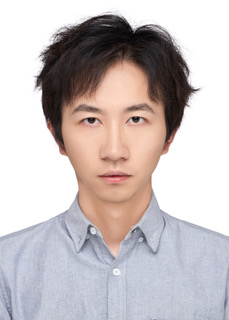CSCI3260: Principles of Computer Graphics (Fall 2023)Course DescriptionComputer graphics is a technology that generates and manipulate images on a computer screen, with wide applications in movies, games, visual simulation, virtual reality and augmented reality, product design and visualization, human-computer interaction, and so on. This course introduces fundamental principles, algorithms, and techniques in computer graphics. Topics include graphics hardware and interaction devices, transformation of coordination systems, projections, rasterization pipeline, hidden surface removal, texture mapping, sampling and antialiasing, modeling 3D curves and surfaces, illumination models and shading, surface materials, raytracing, global illumination, volumetric rendering, and computer animation. In CSCI3260, students will learn to
Course InformationLectures:
Tutorials:
Course Staff
Course notes and assignments are available at Blackboard http://blackboard.cuhk.edu.hk Reference Books
Tentative Schedule
Tutorial SessionsIn addition to regular lectures, this class will also have weekly tutorial sessions. The tutorial sessions will be used mostly to review and clarify the programming assignments, introduce supplement materials of the lectures, and answer questions from students. Course Grades and Assignment PolicyThe final grade is based on four programming assignments, one mid-term exam, and one final exam. Each assignment is 15%, the midterm exam is 20%, and the final exam is 20%. For each assignment, there are also optional bonus points (up to 20% of its total grade). All assignments are due on 11:59pm (HK Time) on the due date. In total there are 4 late days to handle unexpected circumstances (e.g., sickness, personal crisis, family problems). If you use up the 4 late days, we will allow late submissions for up to 24 hours, with a 20% point penalty. No late submissions after 24 hours are allowed, and zero marks will be given in that case. All the assignments will be submitted via Blackboard. More detailed instructions for submission will be provided along with each assignment. Students are welcome to discuss their partial solutions and questions with course staff members during the tutorial sessions, in office hours, or via Blackboard forum. Students are also permitted to discuss common concerns with classmates, but these discussions must be kept at a general level, without exposing their solutions or source code. Finally, please do not publish any questions or solutions of the assignments and the exams, e.g., Github or a publicly accessible web page. This is a violation of the basic Rights, Rules, Responsibilities of members of the University community. Academic HonestyPlagiarism, including copying any parts of code or solutions from your classmates, or releasing your code for others to copy, or copying during the exams, is strictly prohibited and will be treated very seriously. If found responsible, the typical penalty is an F as a course grade plus whatever penalty that the university imposes. If you have any doubts, please read the academic honesty guidelines from the university(https://www.cuhk.edu.hk/policy/academichonesty/) and the academic honesty guidelines from the Faculty of Engineering (https://www.erg.cuhk.edu.hk/erg/sites/default/files/Guidelines_to_Academic_Honesty.pdf), or ask the instructor. AcknowledgementSome of the materials in the lecture slides of this course is built based on similar courses taught by the following professors:
| ||||||||||||||||||||||||||||||||||||||||||||||||||||||||||||||||||||||||||||||||||||||||||||||||||||||||||||||||||||||||||||||||||||||||||||||||||||||||||



